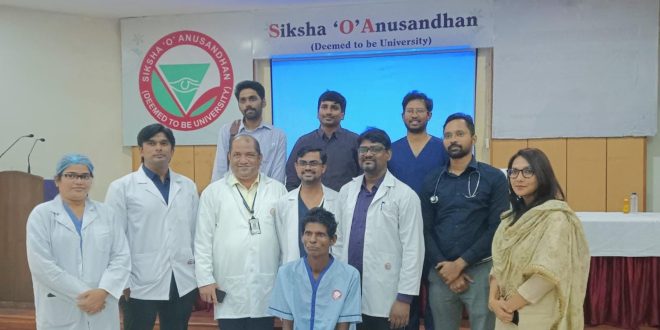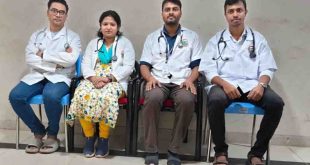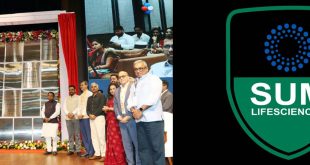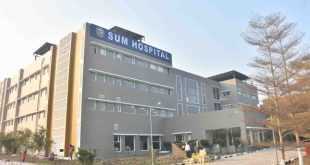Bhubaneswar: A young team of surgeons at the Institute of Medical Sciences and SUM Hospital here have successfully performed a highly complex surgery on a cancer patient which is being billed as the first of its kind in Odisha.
The team performed the complex surgery on a 55-year-old man suffering from pancreatic cancer which was in advanced stage. The tumour involved the major blood vessels of all surrounding vital organs.
The multi-disciplinary team, led by Dr. Jyotirmay Jena, Associate Professor in the Department of Surgical Gastroenterology, pondered over the case and after studying available literature and much deliberation decided to go for surgery.
“What bothered us was that the tumour had affected vital parts like the celiac trunk, arteries of liver, stomach and spleen. Celiac trunk, also known as celiac artery, which divides into three branches supplying blood to stomach, liver and spleen had to be removed. It would mean that there would be no blood supply to the liver which would be fatal,” Dr. Jena told newspersons here on Tuesday.
Dr. Jena said the team decided to operate because the cancer had remained confined to that area but tackling the blood vessels was the major hurdle it faced.
“Surgery in such cases is generally avoided and life expectancy of the patient is only around six months. A very complex surgery known as ‘Appleby Procedure’ is done for this type of cancer cases only in a few hospitals across the world,” he said.
Dr. Jena said this surgery was taken up in selected patients when pre-surgery CT scan confirmed existence of alternate blood supply to the liver. But in this case there was no alternate blood supply to the liver which prompted the team to adopt a ‘Modified Appleby Surgery’.
The team which comprised experts from surgical gastroenterology, cardio thoracic vascular surgery (CTVS), medical oncology, radio-diagnosis and anesthesiology, decided to go ahead with the 10-hour surgery which was performed towards the end of February last.
In this procedure, nearly 75 per cent of the pancreas containing the tumour was removed along with the celiac artery and all other important blood vessels involved. A new blood vessel was created through a bypass graft linking the aorta with the hepatic artery using a vein taken from the leg which saved the liver and stomach, Dr. Sangram Keshari Behera, Associate Professor, CTVS, said.
“Though such operations have a high mortality rate of around 30 to 40 per cent, this patient had a smooth recovery after spending three days in the ICU. Focused attention, proper planning and execution helped,” he said adding the patient’s final biopsy report showed complete tumour clearance.
Dr. Santosh Singh and Dr. Anita took care of the patient in the ICU for 72 hours overseeing his smooth recovery.
“Very few such surgery has been reported in India so far and this is the first such operation which has been successfully performed in Odisha,” Dr. Jena said.
Besides Dr. Jen and Dr. Behera, Dr. S.S. Mohapatra, Professor in Radio-diagnosis, Dr. Sumit Mohanty, Associate Professor in Gastro-surgery, Dr. Lalatendu Maharana, Associate Professor in Medical Oncology, Dr. Sasmita Panigrahi, Associate Professor in Anesthesiology and Dr. Rupanweeta Biswal, Assistant Professor in Pathology were involved in the surgery.
Dr. Uday Reddy, Dr. Harshal Bhoi, Dr. H.Swamyrajesh and Dr. Raghunath Raja, all MCH students, were also part of the team.
 Update Odisha-Latest Odisha News I Breaking News Get latest news on Odisha, Govt. Jobs, OSSC, OPSC, Entertainment, Crime, Sports, and Education
Update Odisha-Latest Odisha News I Breaking News Get latest news on Odisha, Govt. Jobs, OSSC, OPSC, Entertainment, Crime, Sports, and Education



